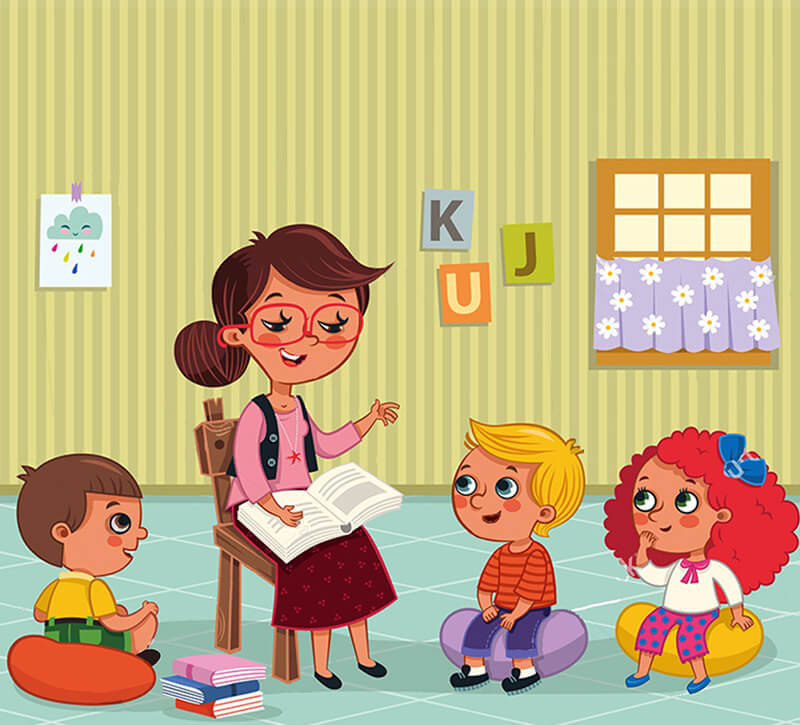
Wouldn’t it be fabulous if we were able to raise a child who is not just smart but who also has the right attitude towards learning. Contrary to popular belief that children are either born intelligent or not, intelligence indeed works like a muscle. All you need to build it is to use it. What this really points us towards is the fact that as parents, we need to raise children with the belief that they can build mental muscle, as also empower them to build it.

While this may seem like a hugely intimidating task, the fact is that with some conscious effort, we can provide opportunities for children to develop what Dr Howard Gardner terms, Multiple Intelligences, namely:
- Linguistic Intelligence
- Bodily-Kinesthetic Intelligence
- Logical-Mathematical Intelligence
- Musical Intelligence
- Interpersonal Intelligence
- Intrapersonal Intelligence
- Visual / Spatial Intelligence
- Naturalistic Intelligence
- Spiritual intelligence
As long as we pique our child’s natural curiosity and help him or her play up to his strengths we can help them live up to their fullest potential. Here are a few things you can do to support early development as well as the instill the right attitude in your child:
- Give your child a head start– This does not mean that you need to push the child academically while he is just about making sense of the world around. What it does mean though is that you need to hold your baby, make him feel loved. Singing to the baby, using gestures, talking to the child even though he does not understand all that you say, playing with him, all go a long way in developing a connection with the child that in turn impact his intelligence.
- Reading to the child- This is one habit, which if begun early helps the child develop language skills, not to mention the fact that it lays the foundation for a life long love for reading and learning.
- Encouraging play dates– Interacting with other children is an essential component of developing the child’s social skills. It allows him to express his ideas while also understanding that of others.
- Physical Exercise– Physical exercise not only keeps the child healthy, it has several other benefits including impacting the child’s still developing brain with increased blood flow.
- Encouraging Creativity– Exposing your child to music, painting, craft and many other such activities allows him to develop not just a love for the arts but also an overall creative streak that goes a long way in enhancing his problem solving abilities. In fact research has proved that listening to music can significantly impact attention span besides reducing stress levels.
- Limit screen time– Much as the world is taking to technology, the fact is too much screen time for a child can play havoc with his imagination. Also the fact that TV or many other screens keep him away from playing, reading or socializing which are crucial to his development add to the risk.
- Do not fill his days with activity– As parents we take it upon ourselves not to allow the child to get bored; filling his day with myriad activities. While some amount of activities are no doubt essential for his development, it is equally important for the child to have some time for quiet reflection. Therefore stop feeling guilty each time the child utters the “B(ored)” word and allow him to find things to do himself. In fact allowing your child time for some free flowing activities instead of binding him into a water tight schedule helps the child develop a flexible mindset which comes in extremely handy in his adult life.
- Give your child the gift of failure- In our pursuit to do the best for our child, we very often forget to give him an important gift- the gift of failure. Allowing the child to take reasonable risks and learn from his experiences goes a long way in preparing him for life. The next time around stop yourself in your tracks if you feel the urge to rush in and solve a problem for the child which if left by himself he is perfectly capable of solving on his own. Remember if they haven’t tasted failure at all as children, they may find it very hard to come to terms with disappointments and failures that you cannot control for them as they step into adulthood.
- Encouraging effort and not the outcome– One other way that you can ensure that your child puts in enough effort in his learning activities, is to encourage effort and not the outcome. Ever so often we are guilty of calling the child a “ good boy” or a “ good girl” when they are able to achieve a great outcome. Similarly the child is labeled “ bad” if he does achieve the desired results. Praising the child for his efforts go a long way in making the child feel that he is in control. On the other hand if you praise him only for the outcome, each time that the outcome is negative his self-esteem can take a beating. For the same reason, he may be hesitant on taking up tasks that he perceives as being “hard” and may be content living in his comfort zone. A word of caution here though- while you need to encourage your child, do ensure that you do not overdo the praise as that may result in them living with a bloated sense of themselves. The right mix of support and feedback will go a long way in raising balanced children. Such children will be able to view failures as opportunities of growth instead of allowing it to impact their self-esteem.
- Encouraging children to speak about their feelings- Ever so often in our pursuit of excellence, the one thing that takes a beating is our feelings. In fact as parents we may often push our own feelings under the carpet and set a wrong example for our children. Next time around instead of telling the child that strong children don’t cry, allow the child to be in touch with his feelings. This will not only go a long way in helping the child’s emotional development, it will also teach him a lesson in empathy that will go a long way in building great relationships both in the personal and professional domain.
A seemingly long list, however if these things are practiced in your day to day parenting, you can rest assured of raising a balanced child who loves to learn and is able to take success and failure in his or her stride!

Amita is an experienced educator with over 30 years of experience. She has an outstanding understanding of child development, having worked with various age groups for prestigious businesses. She has been dedicated to handling Footprints’s Curriculum and Delivery department for the past decade. Amita’s credentials include being one of India’s few HighScope Curriculum certified trainers and volunteering as a course leader for Landmark Education, the world’s largest training firm.

